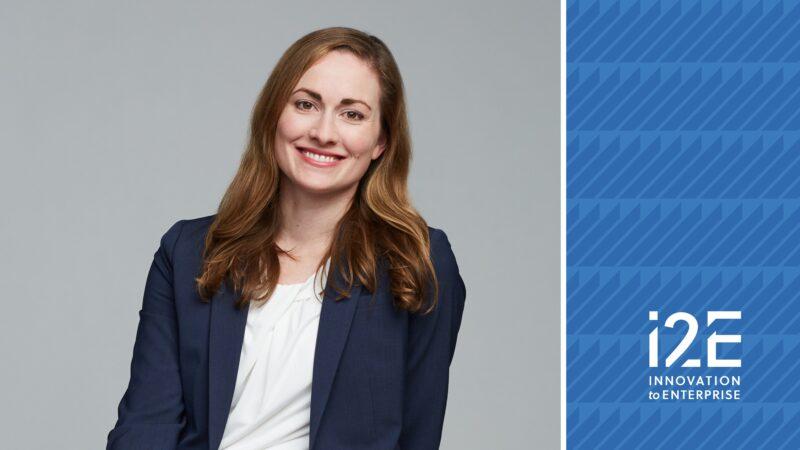An Emerging Tech Center: Oklahoma City Voices from the Startup Community
in Innovation Magazine
Copyright © 2016 | Innovation America
WeGoLook.com co-founder and CEO Robin Smith:
“There are startup ‘hotbeds’ and innovation hubs all around the country that have been coined as such for a variety of reasons. But in many of these places it can be tough as a startup to stand out among the crowd. For every coastal startup that catches the PR wave there are hundreds of others that struggle to get noticed, let alone connect with and leverage local resources. That’s a huge advantage for us in OKC; we have a direct line to city, state and private startup resources that help make the hard things easier. From small business development centers to high growth advisory resources like those i2E provides, it’s relatively easy for startups to plug into local networks that can connect them to the assistance they need.”
Paycom founder and CEO Chad Richison:
“From its people to its business incentives, Oklahoma has been great to Paycom. We hire a lot of good people from local businesses and universities and look to continue that trend. Oklahoma City offers a great economic environment for entrepreneurs and businesses alike. I started Paycom in Oklahoma City because it’s my home and has a strong technology workforce and operational environment. The MAPS program has really helped the city attract businesses to build and develop locally. Oklahoma City was recently named the No. 1 alternative to Silicon Valley for affordable office space and plentiful tech talent, which is a testament to high-growth organizations like Paycom and the city’s tech-friendly business environment.”
Mike Moradi, CEO of Sensulin:
“I was starting companies while in college in the mid-late 1990s, back when i2E was also a startup. There wasn’t much going on other than Urocor, ZymeTx and a handful of small software companies. Today, you have clusters of startups, growth-stage companies and large publicly traded (former startup) companies spread throughout the metro area. There are several dozen life sciences companies in the downtown OKC area. The ecosystems are constantly growing and evolving, and I have to think that our diversification as a community will become increasingly important as we contemplate another down cycle for the energy industry.”
Tom Kupiec, CEO of DNA Solutions and Analytical Research Laboratories:
“GE selected this region of Oklahoma City, this park and the Health Sciences Center area. They could have gone anywhere in the world. This is a great place to do business.”
Marcus Robinson, co-founder and Chief Experience Officer at Monscierge:
“Oklahoma City has a very supportive environment with regards to community and know-how of other business leaders. Leaders of the Oklahoma startup scene try to understand your goals and business and provide support as well as networking. It’s a great place for those considering starting up a company because the cost of living and economy provide for the ability to substantially grow.”
Mick Cornett, Mayor, Oklahoma City:
“I get inspired by this generation of highly educated 20-somethings that is moving to the city and has their own ideas and are not afraid to tell the mayor what they think. Sometimes I joke that I’m just trying to hold them off for another six months before they take over the whole city. But I mean that in a very complimentary way. I’m just very impressed with them.”
Mike Carolina, Executive Director, OCAST:
“We are growing our own entrepreneurs because the state universities are putting more emphasis on it. We are seeing our universities starting to move into that entrepreneurial space where they are trying to get their students to thing entrepreneurially, in addition to thinking globally and strategically.”
Scott Meacham, CEO, i2E, Inc.:
“We are seeing more and better deals in Oklahoma than we ever have seen before. I2E has been around for some 18 years now, and I’m astounded by both the number and the quality of the startups that we are seeing. Our mission is to turn innovation into commercial opportunities, so we are always on the side of promoting innovation. When those innovations occur, our role is to try to turn those into jobs and wealth creation in Oklahoma.”
Stephen Prescott, CEO, Oklahoma Medical Research Foundation:
“I was an inheritor of the benefits of MAPS. Everybody can gripe about one project or another you don’t like. The point is it really changed the attitude of the citizenry about their city in that this is our place, we own it and we are proud of it and we are going to make it better. And that attitude has continued through all sorts of things and other aspects of our community.”
Roy Williams, President, Greater Oklahoma City Chamber:
“This city started with the Land Run in 1889. Those 10,000 people who came here didn’t come here for a job. You could call them entrepreneurial natives, because basically when they came to Oklahoma City to plant their stake in the ground they had to be extremely entrepreneurial in order to figure out how they were going to eat and live and think about what their future was going to be. Now we have learned a whole lot more on how to really coax entrepreneurship, how to provide infrastructure, and other resources that are really conducive to an entrepreneurial environment.”








